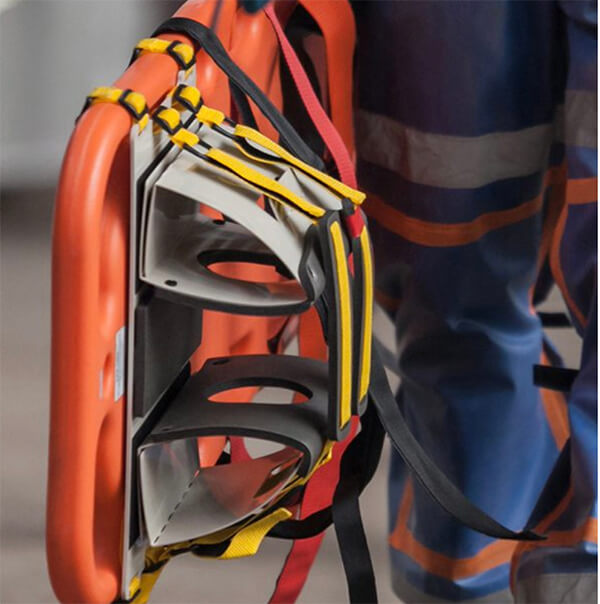The NIGHTINGALE project, funded by the European Union, conducts a mass casualty incident drill in Novara from 18 to 20 October 2023. The exercise aims to put innovative technologies developed by NIGHTINGALE partners to the test in controlled but realistic conditions of mass casualty incidents, including such situations as terrorist attacks, building collapse, and transportation incidents.
The event is organised and hosted by the Centre for Research and Training in Disaster Medicine, Humanitarian Aid and Global Health, Università del Piemonte Orientale (Novara, Italy) and the Italian Red Cross Committee (Galliate, Novara).
A diverse group of volunteers, including members of civil protection agencies, such as emergency medical services, fire brigades, and police, as well as civic volunteers, participate in the exercise. They test the NIGHTINGALE tools and provide valuable feedback on how these technologies can enhance prehospital triage during mass casualty incidents. The technologies that are tested include mobile applications for digital patient monitoring and tracking, incident management and command and control solutions, a next generation Public Safety Answering Point, emergency mobile applications for citizens, a thermographic scanning system, and drones.
As mass casualty incidents become more sudden and challenging for first responders, the integration of new technologies can offer solutions to strengthen collaboration between emergency response agencies at the scene of an incident. This leads to a more efficient and effective emergency and disaster response, ultimately saving more lives
More about the NIGHTINGALE Project
NIGHTINGALE is developing a novel integrated toolkit for emergency medical response. This toolkit has been designed for emergency medical services and non-medical civil protection agencies, including fire brigades, police, search and rescue personnel, volunteers, and citizens.
The toolkit will undergo extensive testing and validation by first responders. This includes practical training exercises, laboratory testing, and small- and full-scale field tests in realistic mass casualty incident scenarios.
More about the Small-Scale Exercise in Mass Casualty Incident Scenarios
In the NIGHTINGALE project, a small-scale exercise is a practical training for first responders and citizens in mass casualty incident scenarios. Although many have attempted to quantify what constitutes a mass casualty incident (MCI), the commonly agreed definition of MCI is an incident where the location, number, severity, or type of casualties exceed the resources usually available to local emergency services. Practical drills, such as small-scale exercises, help to prepare first responders, such as paramedics, emergency doctors, fire brigades, and police, by testing their crisis response strategies and technical equipment in a controlled and safe environment, so they can be better prepared during actual emergencies.
The NIGHTINGALE project, funded by the European Union, conducts a mass casualty incident drill in Novara from 18 to 20 October 2023. The exercise aims to put innovative technologies developed by NIGHTINGALE partners to the test in controlled but realistic conditions of mass casualty incidents, including such situations as terrorist attacks, building collapse, and transportation incidents.
The event is organised and hosted by the Centre for Research and Training in Disaster Medicine, Humanitarian Aid and Global Health, Università del Piemonte Orientale (Novara, Italy) and the Italian Red Cross Committee (Galliate, Novara).
A diverse group of volunteers, including members of civil protection agencies, such as emergency medical services, fire brigades, and police, as well as civic volunteers, participate in the exercise. They test the NIGHTINGALE tools and provide valuable feedback on how these technologies can enhance prehospital triage during mass casualty incidents. The technologies that are tested include mobile applications for digital patient monitoring and tracking, incident management and command and control solutions, a next generation Public Safety Answering Point, emergency mobile applications for citizens, a thermographic scanning system, and drones.
As mass casualty incidents become more sudden and challenging for first responders, the integration of new technologies can offer solutions to strengthen collaboration between emergency response agencies at the scene of an incident. This leads to a more efficient and effective emergency and disaster response, ultimately saving more lives
More about the NIGHTINGALE Project
NIGHTINGALE is developing a novel integrated toolkit for emergency medical response. This toolkit has been designed for emergency medical services and non-medical civil protection agencies, including fire brigades, police, search and rescue personnel, volunteers, and citizens.
The toolkit will undergo extensive testing and validation by first responders. This includes practical training exercises, laboratory testing, and small- and full-scale field tests in realistic mass casualty incident scenarios.
More about the Small-Scale Exercise in Mass Casualty Incident Scenarios
In the NIGHTINGALE project, a small-scale exercise is a practical training for first responders and citizens in mass casualty incident scenarios. Although many have attempted to quantify what constitutes a mass casualty incident (MCI), the commonly agreed definition of MCI is an incident where the location, number, severity, or type of casualties exceed the resources usually available to local emergency services. Practical drills, such as small-scale exercises, help to prepare first responders, such as paramedics, emergency doctors, fire brigades, and police, by testing their crisis response strategies and technical equipment in a controlled and safe environment, so they can be better prepared during actual emergencies.
Contact information of the NIGHTINGALE Project Coordinator

